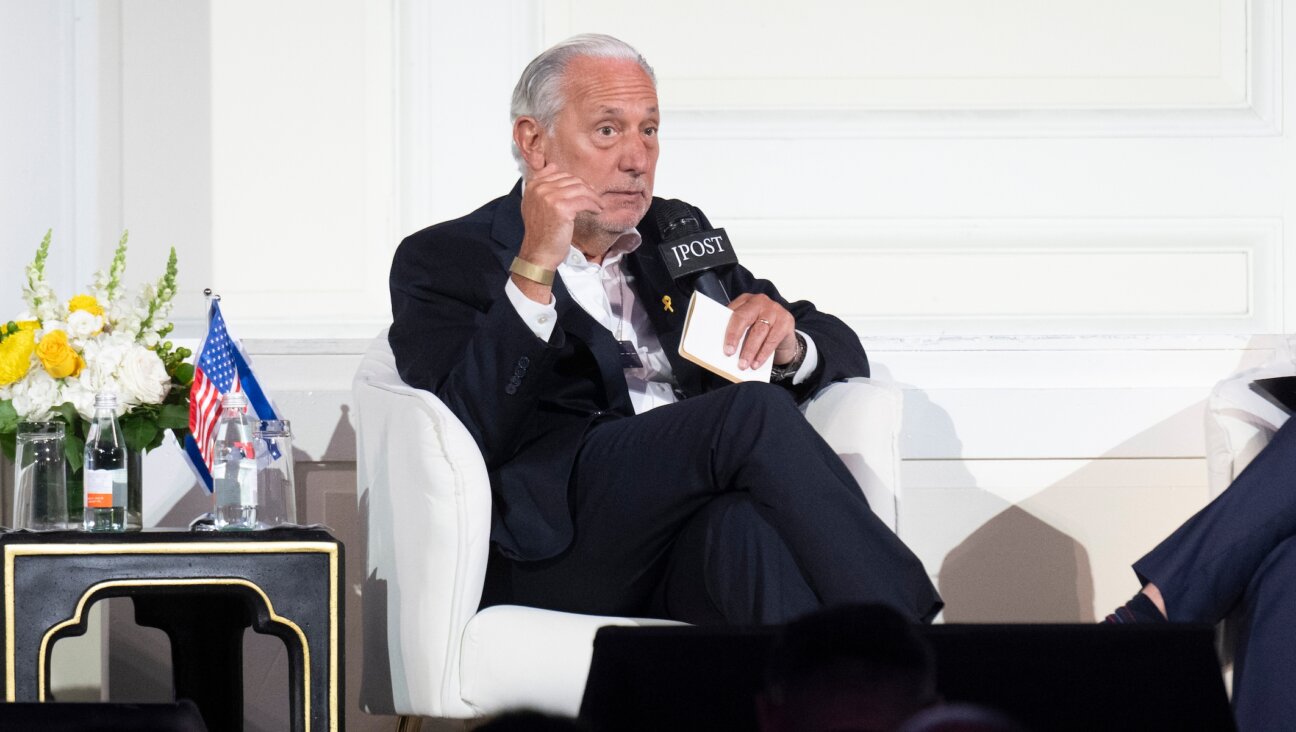Did the Decider Lose Iran?
We Bushies are in legacy mode. With the final months of the presidency upon us, we are thinking about what we did, what we didn’t do and what we could have done. We pay little heed to the insta-history being produced by academic left-wingers and other provocateurs, who never agreed with us to begin with.
But it is less easy to ignore those areas where we know our guy’s record is incomplete or mixed.
Iran is perhaps the most obvious challenge. A charter member of the “Axis of Evil,” the Iranian regime was always regarded as a problem to be solved during the two terms. We held in disregard the Clinton record on Iran, a record of warming and cooling toward the mullahs as they pursued banned weapons and stoked terrorism around the world. We vowed not to kick the can down the road, to delay action until the next president came into office.
Yet here we are. The mullahs are still very much in power. Their weapons programs are intact. And now the administration resorts to a simple explanation for its current meandering diplomatic strategy: Either we do nothing, or we go to war. Neither option is particularly appetizing, so every other possible option is being explored.
Fact is, however, those are the two options that remain from the many we once had. It is fair for us — no matter where we stand on the political spectrum — to ask: Did Bush lose Iran?
The affirmative argument is compelling. An initially botched occupation in Iraq encouraged the mullahs to spread their wings by encouraging terrorist attacks against our forces and the Iraqi people. Iran has played a direct role in attacking American personnel — something they could not have done so easily had we not been in Iraq in the first place.
Moreover, the shock and awe we delivered to the region’s despots by making mincemeat of Saddam’s defenses had a very different effect on the Iranians. They reworked their nuclear program to minimize the possibility of detection or attack. Had we not shown our cards in Iraq, we might have maintained our presumption of military infallibility and therefore our deterrent capability.
Bush also ceded to the Europeans far too much authority over diplomacy with the Iranians. The Germans and French have proven themselves to be no better than tourists in a souk, getting out-bargained and out-hustled again and again. Meantime, the administration paid insufficient attention to the calendar of nuclear weapons technology; once you get past a certain point of uranium conversion, the hard work is largely done. And despite his painful experience with the fundamental flaws in weapons inspection, weapons of mass destruction-related intelligence and the likelihood of arms-related cheating, the president continued to push for inspections and arms development moratoriums, as if those would make a difference.
Finally, the president’s willingness to sacrifice all other priorities for the sake of victory in Iraq — a willingness that is now paying dividends — has distracted him from where his focus could have been quite useful: Building a truly effective international program of economic sanctions and diplomatic isolation of the Iranian regime, a program that would have included an indictment of Iran’s leaders for inciting genocide against the Jews of Israel.
Okay, now for the counterargument: The invasion of Iraq was, in fact, exactly the right thing to do, both to defeat Saddam and to deter the Iranians from further weapons development, just as it scared Muammar Gadhafi into giving up his own weapons of mass destruction.
But Iran’s weapons freeze, believed to have occurred in 2003, was short-lived. With the United States focused entirely on Iraq, and the occupation going poorly, the president was in no position to take the momentum directly to the Iranians, and force them to abandon their nuclear program forever. One could blame Bush for this, but let’s face facts: Iran tilted Iraq toward violence.
Bush also did not give a free pass to Iran on its proxy war against Israel. He, alone among major world leaders, supported Israel’s war against Hezbollah in 2006 — a war that was fought to a draw because of Israeli mismanagement, not because of American interference.
He also has supplied Israel with the necessary anti-ballistic technology to defend itself against the inevitable Iranian missile strike. And by maintaining funding for “Star Wars”-related missile defense programs throughout his term, Bush has given his successors a technology capable of defending not just the United States, but Europe and other allies, against Iranian aggression. Barack Obama now opposes missile defense, but he may find it useful one day.
So, on balance, a mixed record. One can fault Bush for not being aggressive enough, or bold enough, in confronting Iran. One can certainly say he was not true to his gut, as his former adviser John Bolton has said.
But the fault is not Bush’s alone. Had Europe taken a more aggressive stance toward Iran, the United States would have supported it. Had Russia stopped all technology shipments to Iran, that would have helped.
Ultimately, however, America is, as usual, largely alone in this struggle. The rest of the world may be willing to live with an Iranian bomb. We can’t — and under Bush, the United States did a lot to prevent it. Whether that legacy is positive or not depends entirely on whether Iran ever gets a bomb. It hasn’t happened yet.
In his final months, Bush should clarify to the American people just why Iran’s leaders represent a major threat to the world. He should call out the Iranian regime for its policy of governing by fear — the public hangings, stonings and intimidation of political dissidents, religious minorities, trade unionists and other free thinkers. Such actions are meant to frighten people into silence, and the president is not one to be silenced.
He should ban Iran’s leaders from ever visiting American soil and declare that Iran’s souk-style diplomacy will no longer suffice to keep American military planners from their task of defanging the regime. He should demand that all of our European allies ban Iran’s proxy terrorist organizations, such as Hezbollah. He should make it a state-level challenge and cut off Iranian refined gasoline shipments; Iran would quickly fall into chaos.
Above all, Bush needs to create leverage. If you have to ask whether you have enough leverage, you don’t.
These are the elements that draw directly from the Bush playbook — strong, vigorous and bold actions that address problems in the here and now, and leave as little as possible to the next administration. Historians may fancy themselves the deciders of a president’s legacy, but there is only one decider — and he is still in the Oval Office.
Noam Neusner served as President Bush’s principal economic and domestic policy speech writer from 2002 to 2004.
The Forward is free to read, but it isn’t free to produce

I hope you appreciated this article. Before you go, I’d like to ask you to please support the Forward.
Now more than ever, American Jews need independent news they can trust, with reporting driven by truth, not ideology. We serve you, not any ideological agenda.
At a time when other newsrooms are closing or cutting back, the Forward has removed its paywall and invested additional resources to report on the ground from Israel and around the U.S. on the impact of the war, rising antisemitism and polarized discourse.
This is a great time to support independent Jewish journalism you rely on. Make a Passover gift today!
— Rachel Fishman Feddersen, Publisher and CEO
Make a Passover Gift Today!
Most Popular
- 1

News Student protesters being deported are not ‘martyrs and heroes,’ says former antisemitism envoy
- 2

News Who is Alan Garber, the Jewish Harvard president who stood up to Trump over antisemitism?
- 3

Opinion What Jewish university presidents say: Trump is exploiting campus antisemitism, not fighting it
- 4

Opinion The dangerous Nazi legend behind Trump’s ruthless grab for power
In Case You Missed It
-

Yiddish פֿילאַנטראָפּ אלי הירשפֿעלד שענקט פֿאָרווערטס די אינטערנעץ־אַדרעסן Yiddish.com און Yiddish.orgPhilanthropist Eli Hirschfeld donates domains Yiddish.com and Yiddish.org to the Forward
די מתּנה וועט דערמעגלעכן מער אָנהענגערס פֿון ייִדיש צו געפֿינען די ייִדישע ווידעאָס, אַרטיקלען און שפּילן פֿונעם פֿאָרווערטס.
-

Fast Forward Antisemitic incidents on college campuses rose over 80 percent last year, says the ADL
-

Fast Forward As the last generation of Holocaust survivors ages, advocates call for their testimonies to be heard
-

Fast Forward Jewish Federations CEO privately opposed a Jewish open letter criticizing Trump’s campus arrests
-
Shop the Forward Store
100% of profits support our journalism
Republish This Story
Please read before republishing
We’re happy to make this story available to republish for free, unless it originated with JTA, Haaretz or another publication (as indicated on the article) and as long as you follow our guidelines.
You must comply with the following:
- Credit the Forward
- Retain our pixel
- Preserve our canonical link in Google search
- Add a noindex tag in Google search
See our full guidelines for more information, and this guide for detail about canonical URLs.
To republish, copy the HTML by clicking on the yellow button to the right; it includes our tracking pixel, all paragraph styles and hyperlinks, the author byline and credit to the Forward. It does not include images; to avoid copyright violations, you must add them manually, following our guidelines. Please email us at [email protected], subject line “republish,” with any questions or to let us know what stories you’re picking up.














